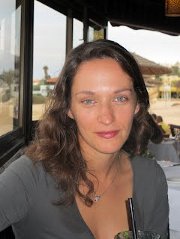In this episode, Matt continues his European adventure by sitting down with Catarina Dutilh Novaes, Assistant Professor and Rosalind Franklin Fellow at the University of Groningen. Click here to listen to their conversation.
 Philosophers want to answer big, sexy questions like how one should live or what knowledge is. How should one go about answering questions like that? Random guessing is definitely out. That’s because philosophical insight is supposed to be the result of some kind of rigorous investigation. But what is that kind of investigation supposed to look like? This is a question about philosophical methodology, and an extremely important one. After all, if we don’t know what methods we can use to gain philosophical insight, it’s hard to know whether we’re on the right track when we try to answer those big, sexy questions.
Philosophers want to answer big, sexy questions like how one should live or what knowledge is. How should one go about answering questions like that? Random guessing is definitely out. That’s because philosophical insight is supposed to be the result of some kind of rigorous investigation. But what is that kind of investigation supposed to look like? This is a question about philosophical methodology, and an extremely important one. After all, if we don’t know what methods we can use to gain philosophical insight, it’s hard to know whether we’re on the right track when we try to answer those big, sexy questions.
Say I want to know what time is like. How should I begin? Well, I could try to engage in some a priori reflection by consulting my intuitions about time and testing those in some nifty thought experiments. Or I could try to formalize my intuitions about temporal relations like before, after, etc. Or I could begin by investigating how the concept of time has evolved in history. Alternatively, I might turn to the work of theoretical physicists for some answers.
Are any of these ways of proceeding uniquely situated to lead me to some real philosophical insight, or all they all equally legitimate? Should philosophers of time privilege one method over the others, or would different questions in the philosophy of time lend themselves to different methods?
In this episode, Dr. Novaes argues that philosophers should embrace a pluralistic approach to philosophical methodology—one that appeals to all of the above methods to answer philosophical questions—and discusses how this approach can be applied to questions about the nature of deductive reasoning.
Alex Langlinais
Leave a Reply